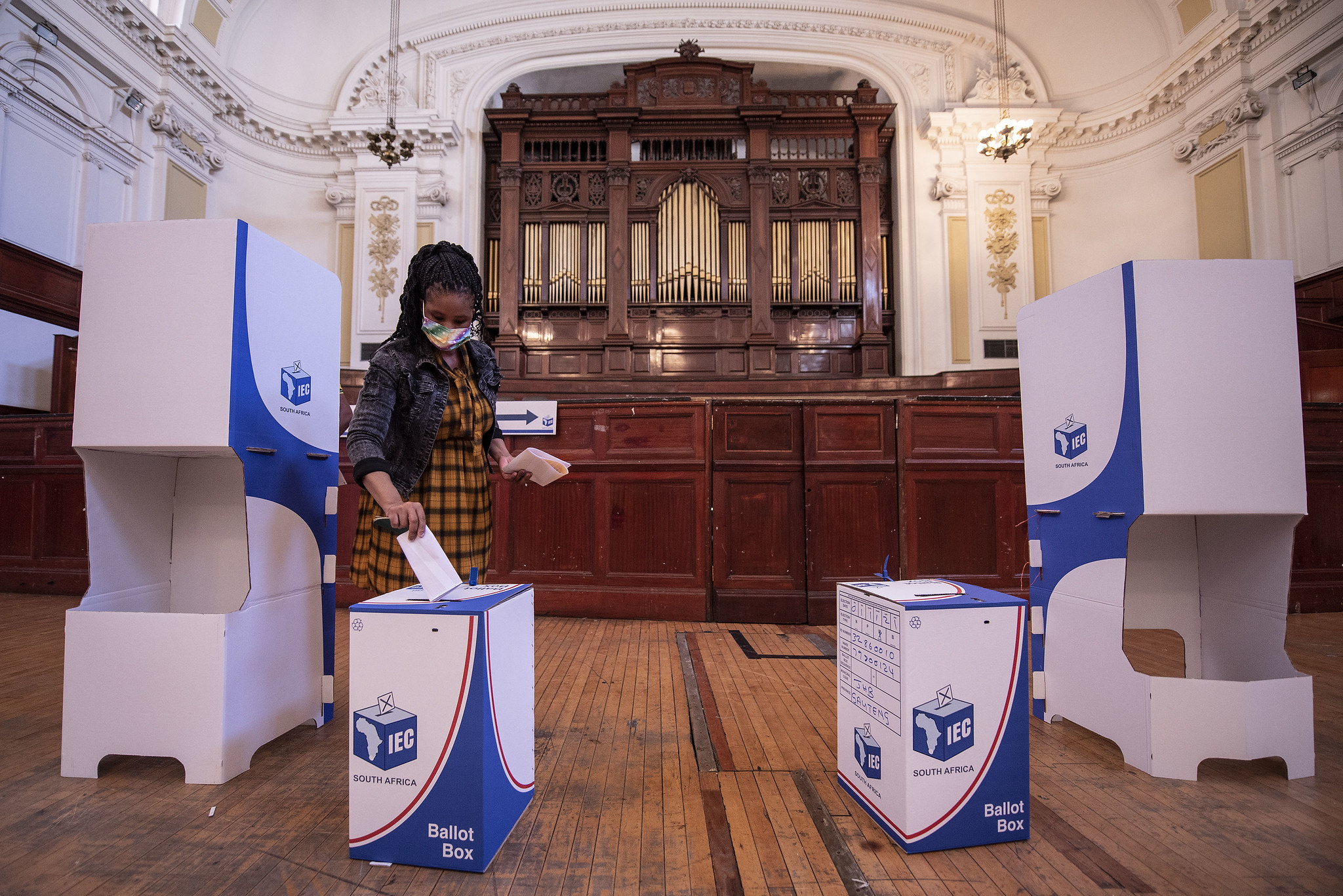The Portfolio Committee on Home Affairs is seeking permission to broaden the scope of the Bill.

Parliament’s Portfolio Committee on Home Affairs has adopted an interim report on the Electoral Amendment Bill despite some parties opposing parts of the proposed legislation.
The report will now go to the National Assembly, with the committee seeking permission to broaden the scope of the Bill since substantive amendments were made to it.
The committee has also agreed to make the Bill with the new changes public for written submissions, but only for a period of two weeks after having previously held provincial public hearings in March.
The Bill will be published once the National Assembly has processes the amendments, according to the committee’s secretariat, Eddie Mathonsi.
ALSO READ: Electoral Amendment Bill remains a complex issue
“After the National Assembly has granted permission then we will be able to advertise the Bill without coming back to the committee,” Mathonsi said during a parliamentary meeting on Tuesday.
The committee has been tasked to amend the Electoral Act 73 of 1998 to allow independent candidates to stand in national and provincial elections in the future, and to substitute Schedule 1A, among other things.
Substantive amendments
Despite the committee having finalised its deliberations on the Bill, the Democratic Alliance (DA) and the Economic Freedom Fighters (EFF) have objected to the final version of it.
The committee has identified certain sections of the Electoral Act that require an amendment as well as subjects that the Bill does not address.
READ MORE: MPs at ‘loggerheads’ over parts of Electoral Amendment Bill
This follows the public submissions received by the committee and deliberations during its meetings.
The committee is seeking the National Assembly’s permission to include the following:
- An amendment to 27(2)(cA) which now provides that a declaration must be signed by the representative of the party confirming that each candidate appearing on the party’s provincial list is registered to vote within the province.
- The amendment to 31A of the Bill to allow independent candidates to contest more than one region for a seat in the National Assembly.
- The amendment to 31B(3)(a) that an independent candidate must complete a prescribed formed confirming that the candidate has submitted names, identity numbers and signatures of voters and who support the candidate, totalling at least 30% of the quota for a seat.
- The removal of the words “if any” from 31B(3)(b). This materially changes the original Bill, as the original Bill implied that there could be instances where a deposit is not required from an independent candidate, and the committee agreed this would not be the case.
- The amendment to 31B(3)(e). It is further no longer a requirement that the independent candidate provide a declaration confirming that they are a resident of the region in which the election will take place, unless that independent candidate is contesting a provincial legislature seat.
- The deletion of 318(3)(f). An independent candidate no longer is required to provide a prescribed declaration confirming that he or she has not been a member of any political party for at least three months preceding the date of the nomination.
- The addition to 31B, with the new 31B(6), which states that the deposit by an independent candidate contesting an election of a provincial legislature less than the amount for contesting an election of the National Assembly.
There’s also some significant changes to Schedule 1A of the Electoral Act, which is a system of representation in National Assembly and provincial legislatures.
These changes include that:
- The Bill retains the existing voting allocation system as contained in the Electoral Act and expands it to include independent candidates, using the highest remainder.
- The Bill reflects that there will be three ballot papers.
- The Bill ensures that vacancies for independent candidates are filled through a recalculation.
- The Bill provides that independent candidates contesting in more than one region cannot aggregate their votes.
RELATED: ‘New Electoral Act could just be a sneaky way to steal power’ from voters
The committee has until 10 December 2022, to complete its work after was granted a six-month extension by the Constitutional Court (ConCourt) almost three months ago.
It had also aimed to send the Bill to President Cyril Ramaphosa for approval by the end of September.
MAC recommendation
Meanwhile, civil society groups have threatened Parliament with legal action over the Bill having questioned whether it would be constitutional once signed into law.
The organisations argued that they made submissions to the ministerial advisory committee (MAC) and some of their proposals were favourably supported by the members of the committee in its majority recommendation on the Bill.
“We also participated, in various ways, on the parliamentary processes regarding the Electoral Amendment Bill where our submissions have similarly been sidelined. This presents us and the country with serious difficulties,” the organisations said.
Home Affairs Minister Aaron Motsoaledi appointed the MAC in February 2021, with the committee’s majority recommendation on the Bill proposing a system that combined both a mixed single-member constituency as well as proportional representation (PR) system.
However, Motsoaledi and the Department of Home Affairs chose the MAC’s minority proposal and drafted the amendment Bill that relied solely on a PR system.
NOW READ: Electoral Act changes must pass urgently to avoid constitutional crisis before 2024 polls






